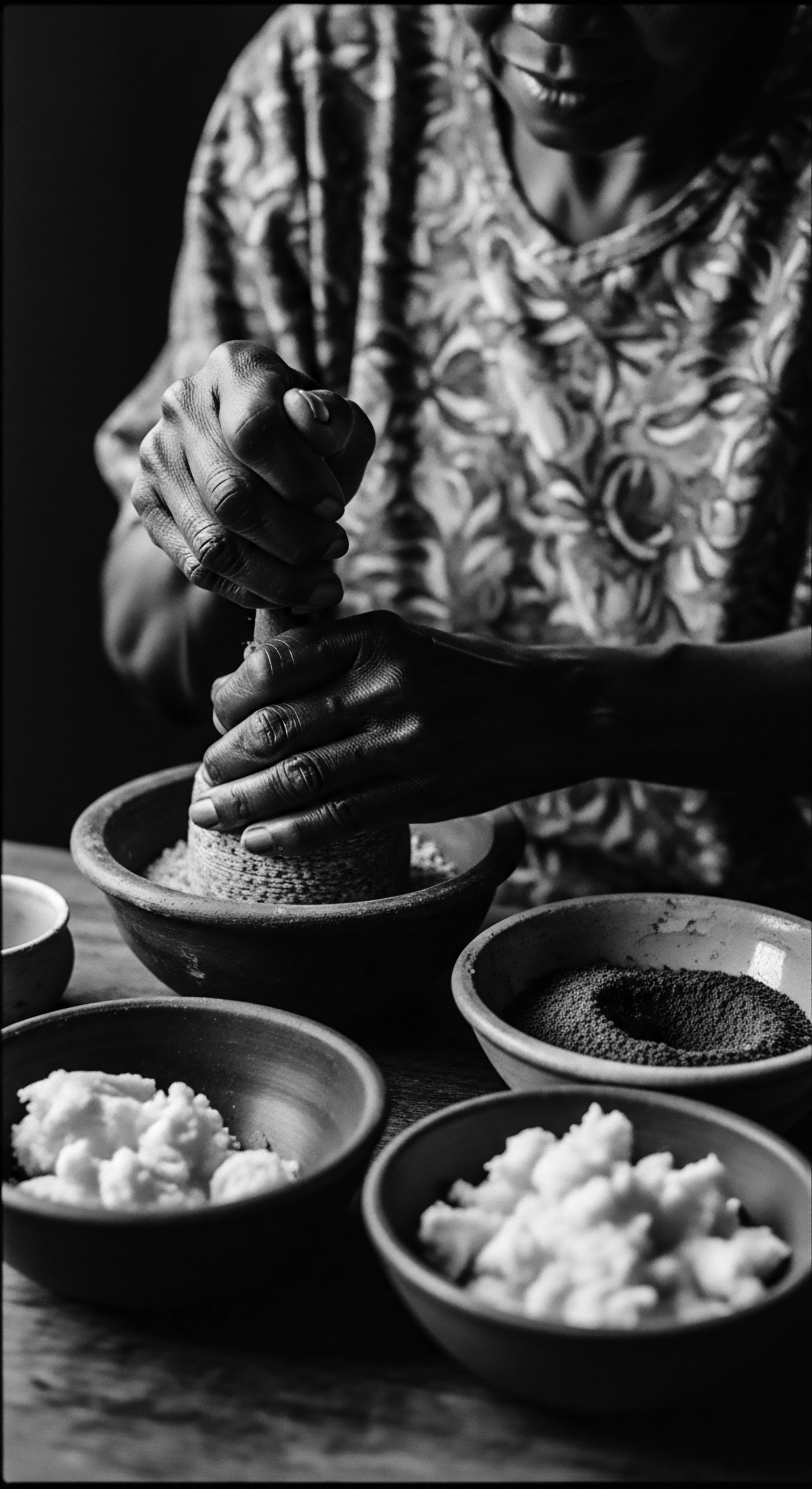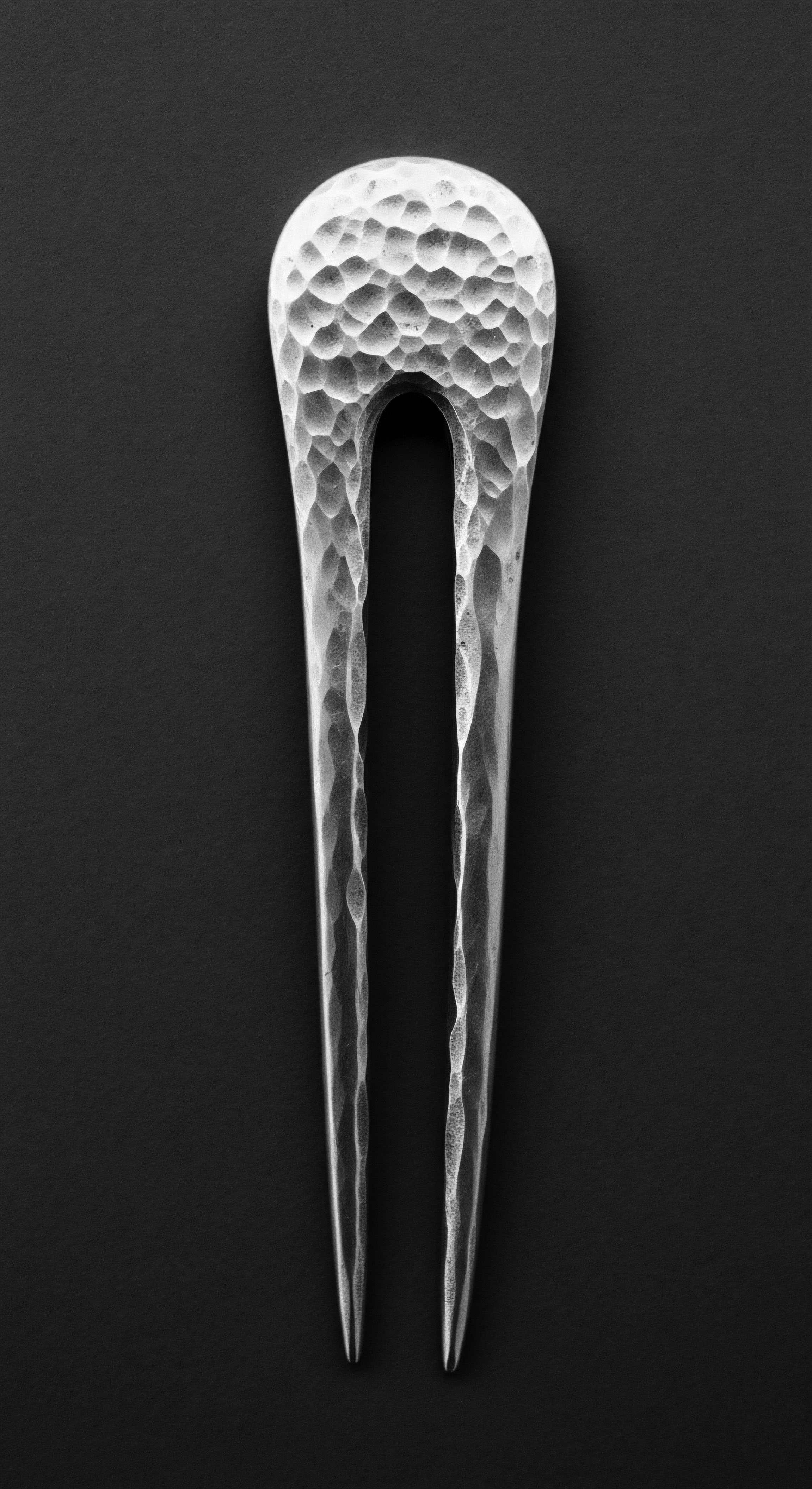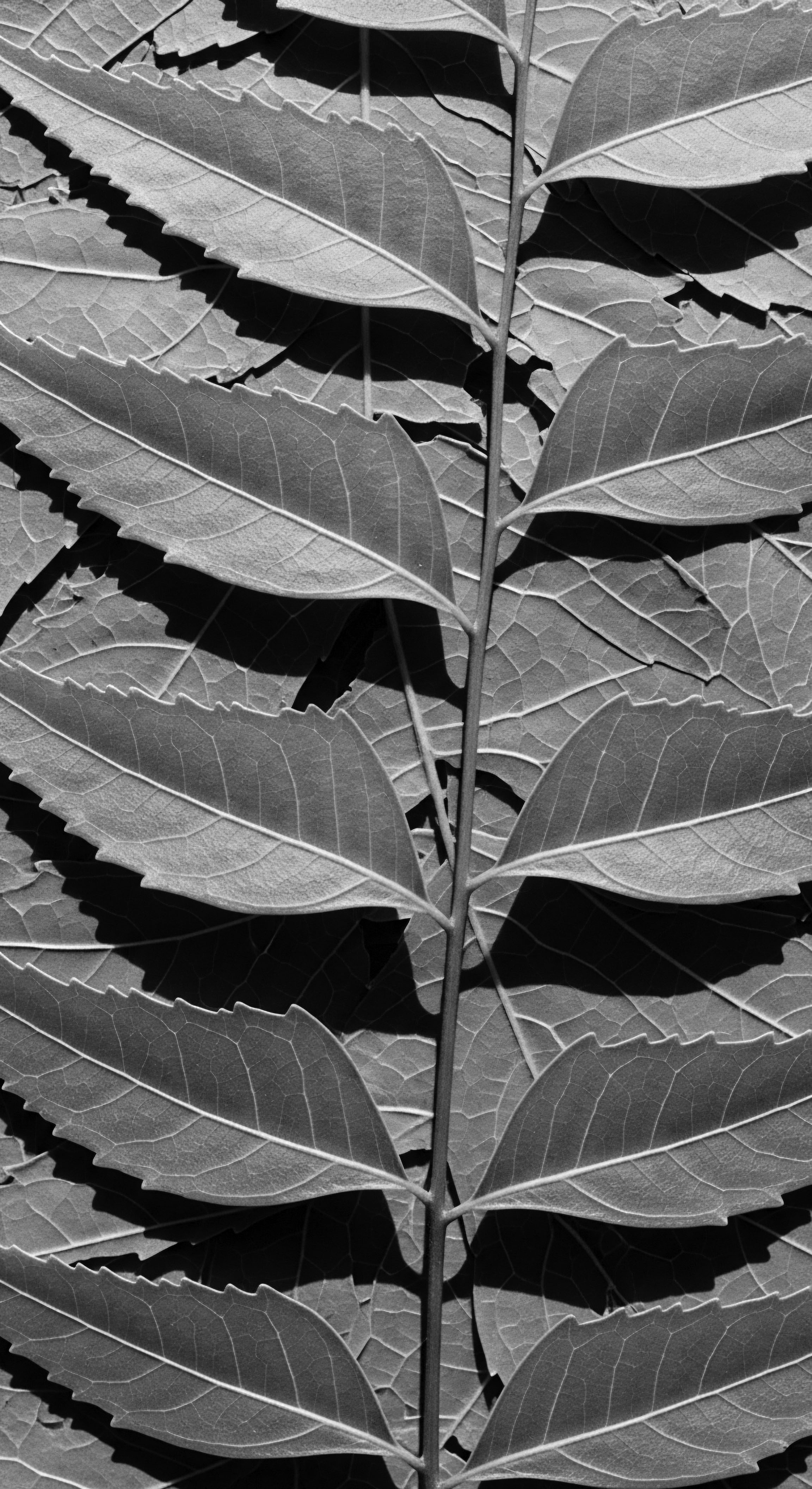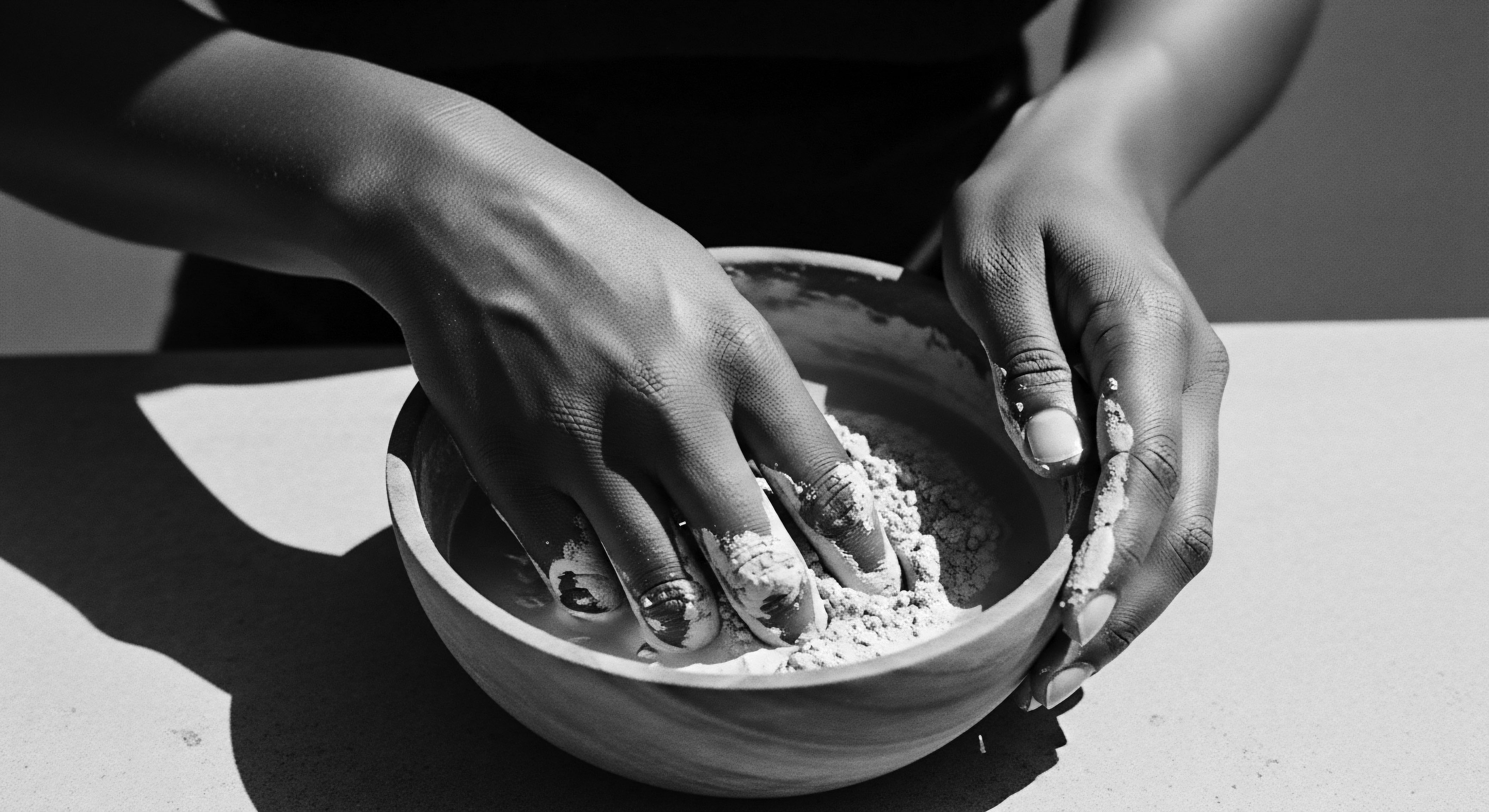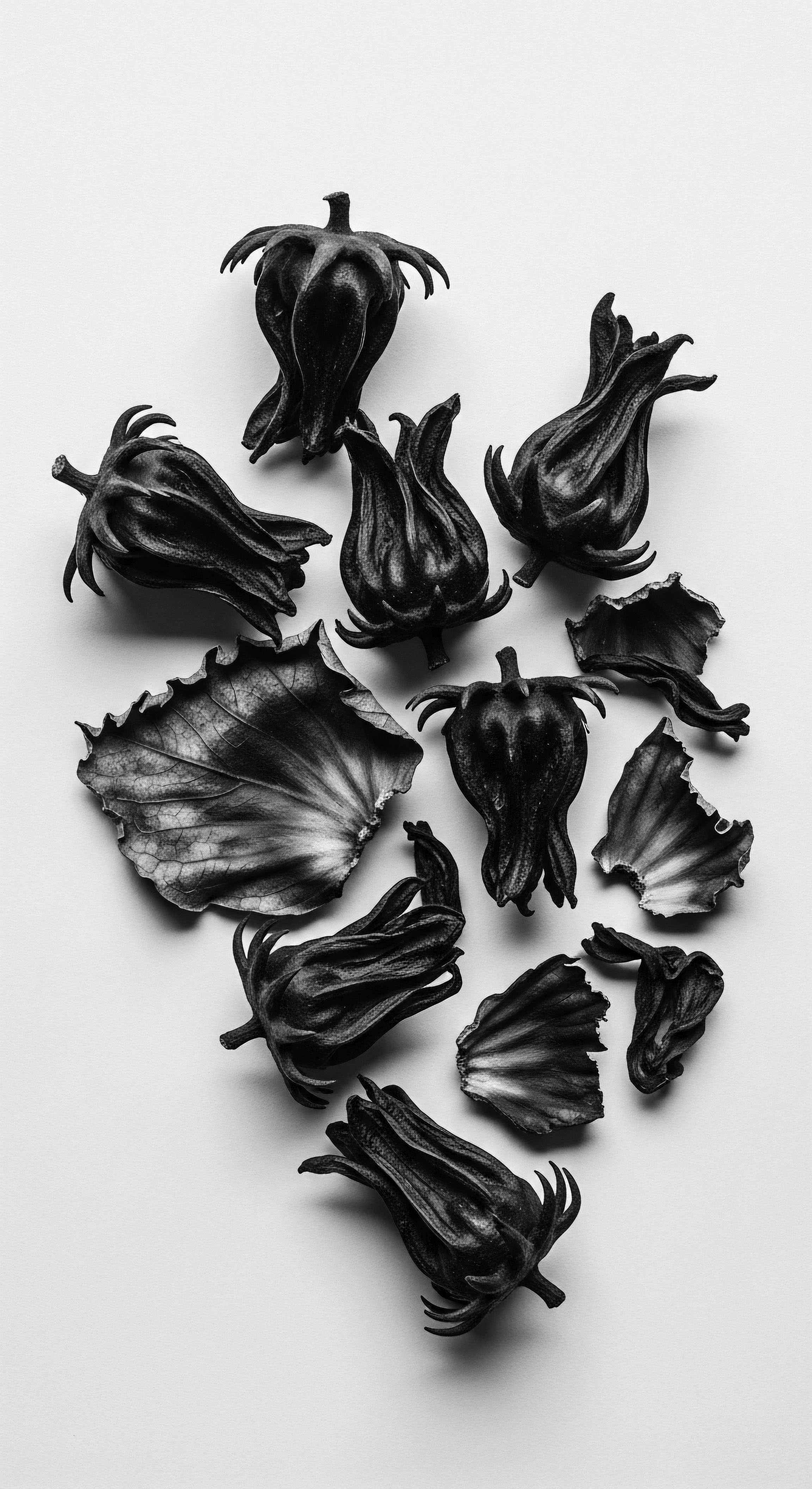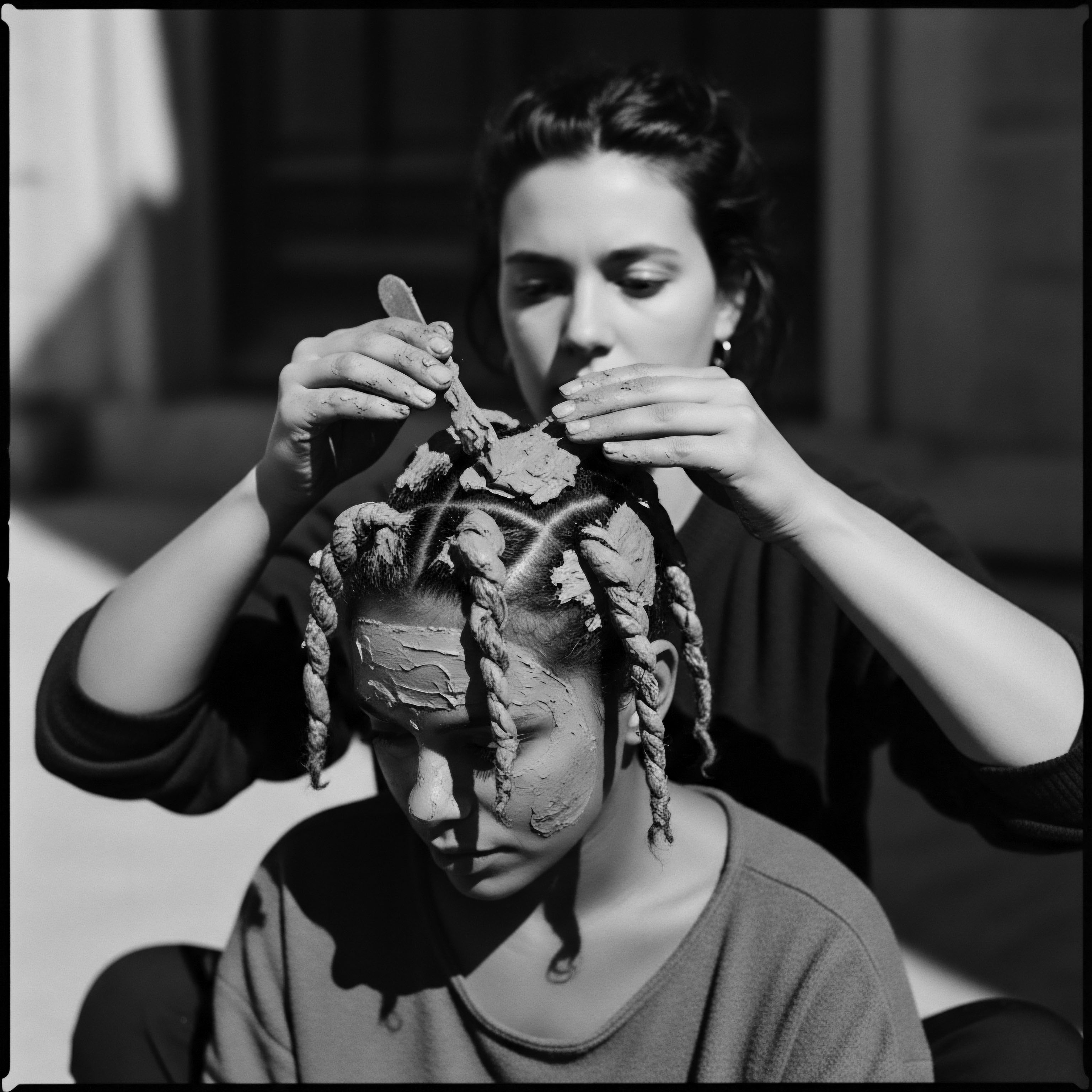
Fundamentals
The understanding of Botanical Hair Care, within Roothea’s living library, begins not as a modern innovation but as an echo from ancient hearths, a practice deeply etched into the very fibers of human communal existence, particularly within the lineage of textured hair. At its most fundamental, Botanical Hair Care represents the purposeful application of elements sourced directly from the natural world ❉ plants, minerals, and their derivatives ❉ to nurture, cleanse, adorn, and protect the hair and scalp. This delineation extends beyond mere cosmetic application; it speaks to a symbiotic relationship between humanity and the earth, where botanical resources were revered for their inherent capacity to sustain wellness and express identity.
From the earliest records of human ingenuity, across continents and cultures, the use of botanicals for hair has been a constant. For communities with textured hair, notably those of African and diasporic descent, this practice was never a fleeting trend; it constituted a cornerstone of personal and collective identity. Before the advent of synthetic compounds, before industrial processes reshaped beauty rituals, ancestral populations relied solely upon the earth’s generosity.
They understood the properties of local flora through generations of observation and experimentation, a wisdom passed down through oral traditions, hands-on teaching, and lived experience. This foundational knowledge forms the very meaning of Botanical Hair Care: a direct connection to the source, a reliance on nature’s own pharmacopeia for the vitality of the hair.
Botanical Hair Care, at its core, is the ancestral art of employing earth’s direct offerings ❉ plants and their extracts ❉ to tend to hair, a practice woven into the cultural fabric of textured hair communities across time.
The earliest forms of Botanical Hair Care for textured strands involved a profound intimacy with the immediate environment. African communities, for instance, employed ingredients like shea butter (from the karite tree), palm oil, and various plant extracts to moisturize and seal hair, providing essential protection against the elements. These substances were not merely for superficial beautification; they served vital roles in maintaining scalp health, preventing breakage, and facilitating intricate styles that often conveyed complex social information.
Hair, in many ancient African societies, was a living canvas, communicating a person’s age, marital status, social standing, tribal affiliation, and even spiritual beliefs. The care of hair, therefore, became a daily ritual of self-affirmation and communal connection, with botanicals serving as the essential tools for this expression.
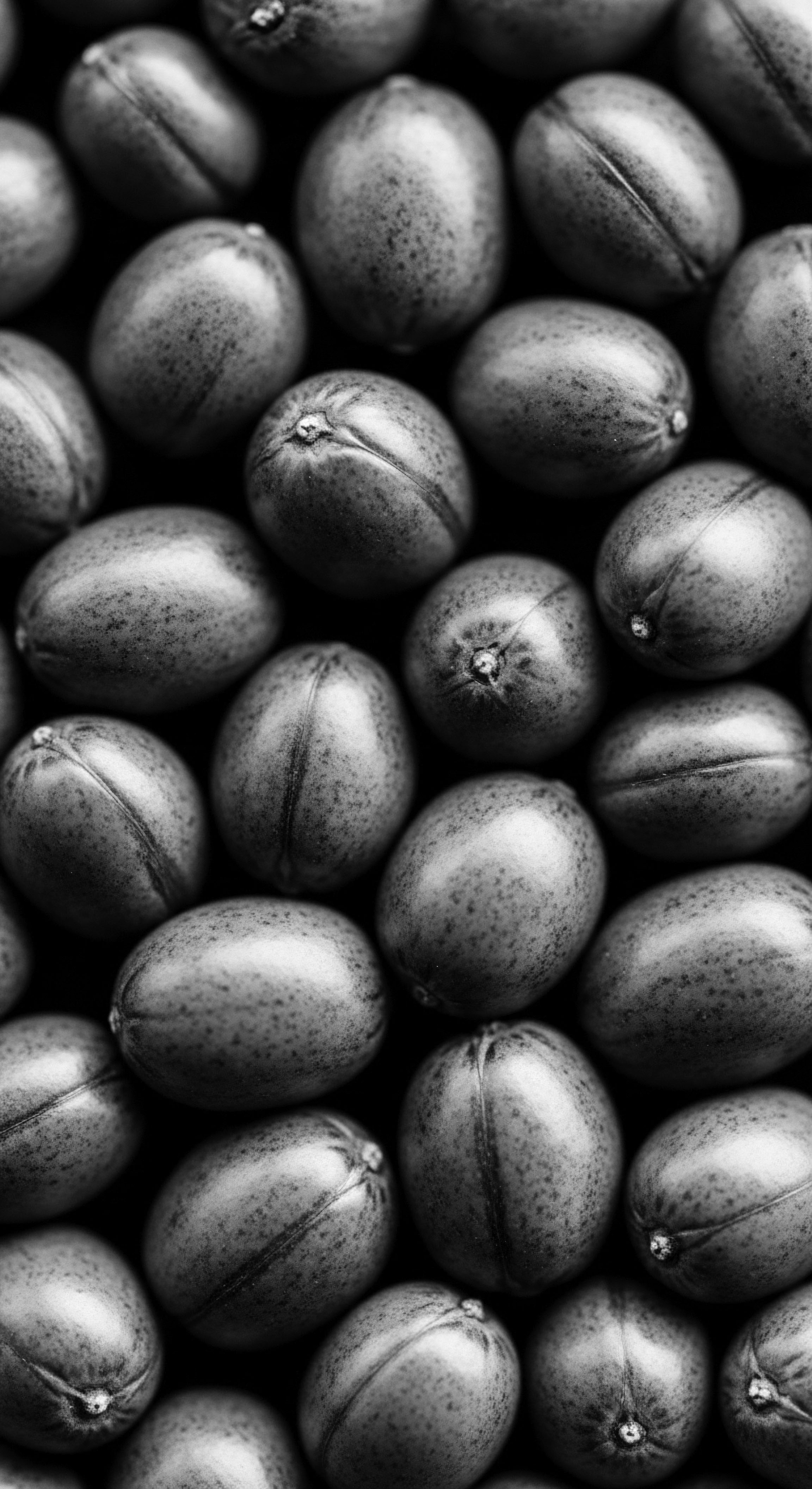
Ancestral Ingredients and Their Early Applications
The selection of botanicals was guided by empirical observation and inherited wisdom. The resilience of particular plants, their moisturizing qualities, their cleansing capabilities, or their capacity to impart shine were all recognized and applied. These were not random choices; they were the outcome of centuries of interaction with specific ecosystems.
- Shea Butter ❉ Widely utilized across West Africa, this creamy butter derived from the nut of the shea tree served as a potent moisturizer and sealant for hair and skin. It protected strands from sun and environmental stressors, forming a protective barrier that prevented dryness and breakage.
- Aloe Vera ❉ A succulent plant, its gel was used for its soothing and hydrating properties, beneficial for scalp health and adding shine to hair. Its anti-inflammatory attributes were recognized for calming scalp irritations.
- African Black Soap ❉ Originating from West Africa, this soap, often made from plantain skins, cocoa pods, and shea butter, provided a gentle yet effective cleanse for hair and scalp without stripping natural oils.
- Henna ❉ Though perhaps more widely associated with South Asian traditions, henna also holds a place in North African hair care, used for centuries to strengthen hair, add sheen, and impart a reddish-brown color.
These fundamental applications of botanical resources represent a continuum of knowledge, a testament to the ancestral understanding that the earth provides everything needed for vitality and expression. The very concept of Botanical Hair Care, therefore, is rooted in this ancient alliance between human needs and nature’s generosity, particularly significant for those whose hair naturally coils and curls, demanding a care approach that respects its unique architecture.
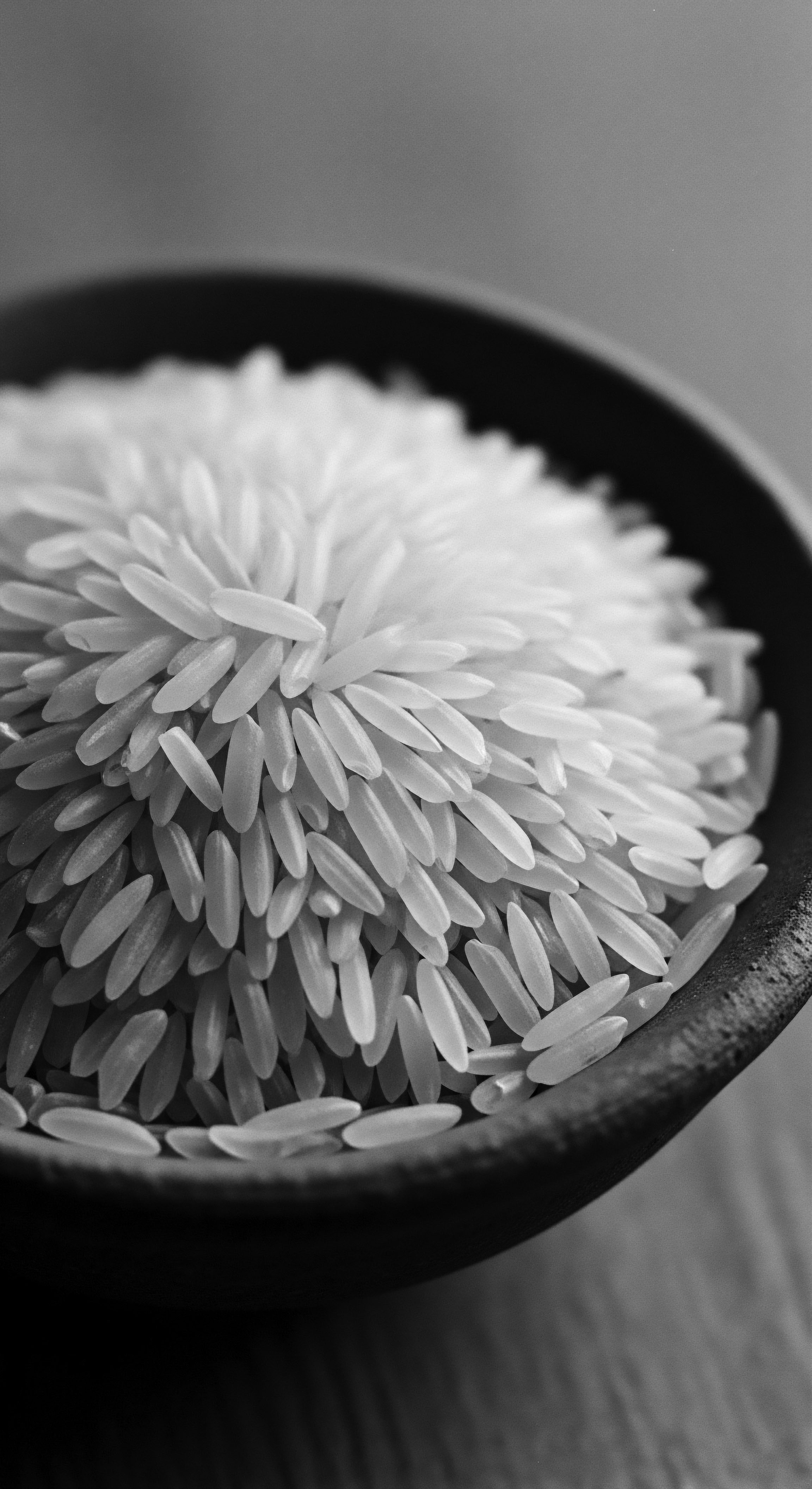
Intermediate
Moving beyond the foundational elements, the intermediate understanding of Botanical Hair Care for textured hair unveils a story of enduring heritage and ingenious adaptation. This stage explores how ancestral practices, born from a deep reverence for the natural world, traversed oceans and generations, evolving while retaining their core integrity. The significance of Botanical Hair Care here lies in its role as a living cultural artifact, a testament to the resilience of Black and mixed-race communities in preserving identity through ritualistic hair care, even in the face of immense adversity. The care of textured hair with botanicals became more than a physical act; it became a language of survival, a silent yet powerful declaration of selfhood and continuity.
As people of African descent were forcibly displaced during the transatlantic slave trade, their traditional hair care practices, including the use of specific botanicals, faced brutal suppression. Slaveholders often shaved heads as a dehumanizing tactic, aiming to strip individuals of their cultural markers and identity. Despite these attempts at erasure, the wisdom of Botanical Hair Care persisted. Enslaved women, lacking access to their native tools and ingredients, innovated, utilizing what was available in their new environments while subtly adapting traditional methods.
This period saw the clandestine preservation of ancestral knowledge, with rudimentary combs fashioned from found materials and natural fats and herbs applied to hair for moisture and protection. These acts, seemingly small, held immense cultural weight, maintaining a connection to a lost homeland and a shared heritage.
The continuity of Botanical Hair Care within textured hair communities stands as a powerful symbol of cultural resilience, a testament to inherited wisdom adapting across generations and geographies.
One poignant historical example that illuminates this profound connection is the practice, documented by Judith A. Carney, of enslaved West African women braiding rice seeds into their hair before being forced onto slave ships bound for the Americas (Carney, 2001). This seemingly simple act was a profound strategic maneuver, transforming their hair into a living vessel for cultural preservation and future sustenance. The rice, a staple crop in many West African regions, was carried across the Middle Passage, ensuring that the knowledge and means of cultivation could survive in the new, often hostile, environments of the Americas.
This act demonstrates how Botanical Hair Care was not merely about aesthetic appeal or physical health; it was deeply intertwined with survival, agriculture, and the continuation of cultural practices against overwhelming odds. The very strands of hair became a repository of ancestral knowledge, a mobile archive of resilience.
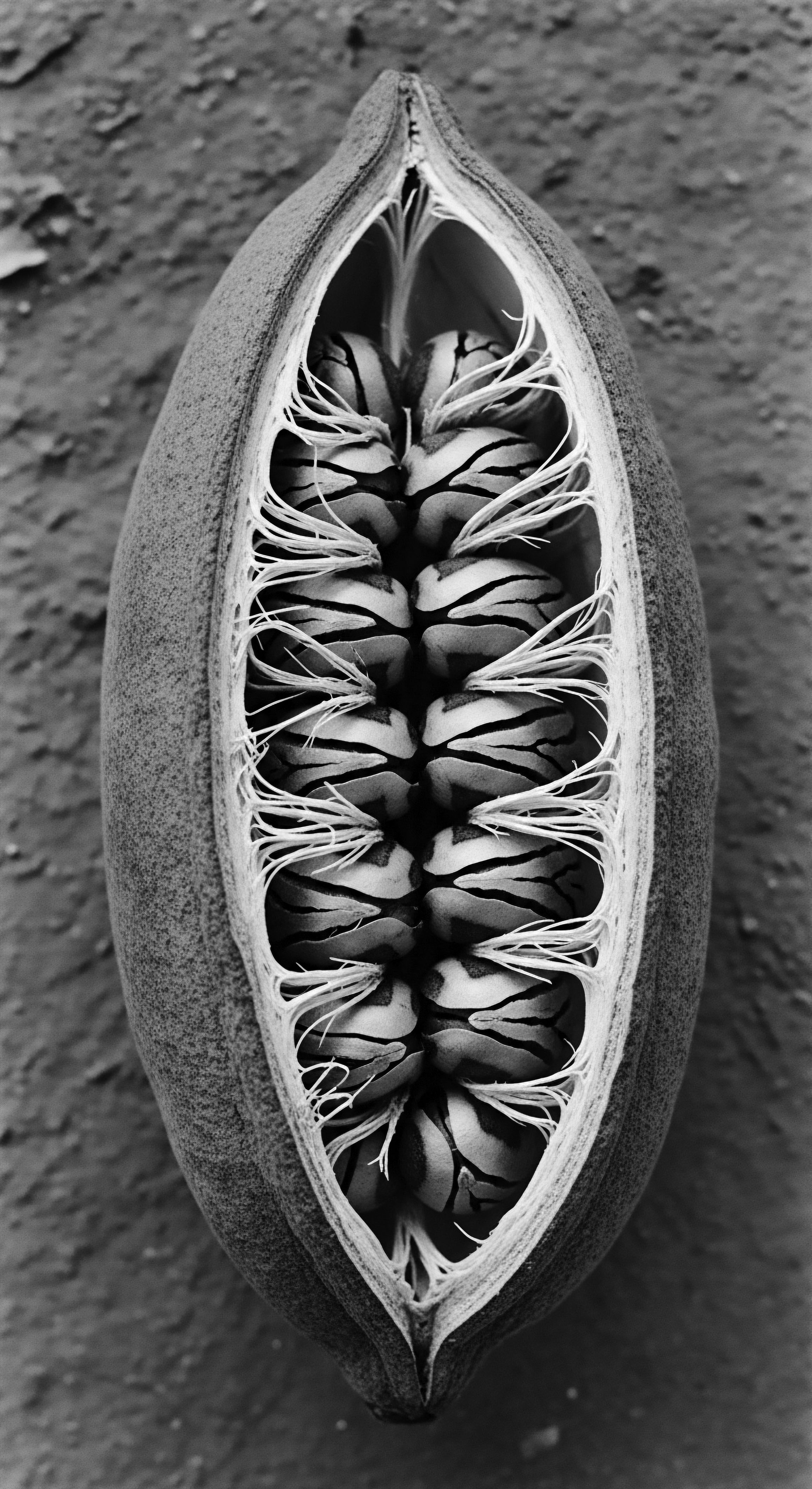
The Evolution of Care Rituals in the Diaspora
As generations passed, the practices of Botanical Hair Care continued to adapt within diasporic communities. In the Caribbean and the Americas, new botanicals were incorporated, blending African ancestral knowledge with Indigenous and local plant wisdom. Coconut oil, castor oil, and various local herbs became staples, used for their conditioning, strengthening, and moisturizing properties.
These ingredients were often prepared through communal rituals, mirroring the collective hair care sessions that were central to African societies. These gatherings served as vital spaces for social bonding, the exchange of knowledge, and the quiet assertion of cultural identity.
The communal aspect of hair care, sustained through these botanical practices, offered a sanctuary amidst oppression. It was a space where stories were shared, traditions were reinforced, and the unique beauty of textured hair was celebrated, even when dominant societal norms disparaged it. The application of botanical masks, oils, and washes became a tactile link to ancestry, a physical manifestation of an unbroken chain of care and cultural pride.
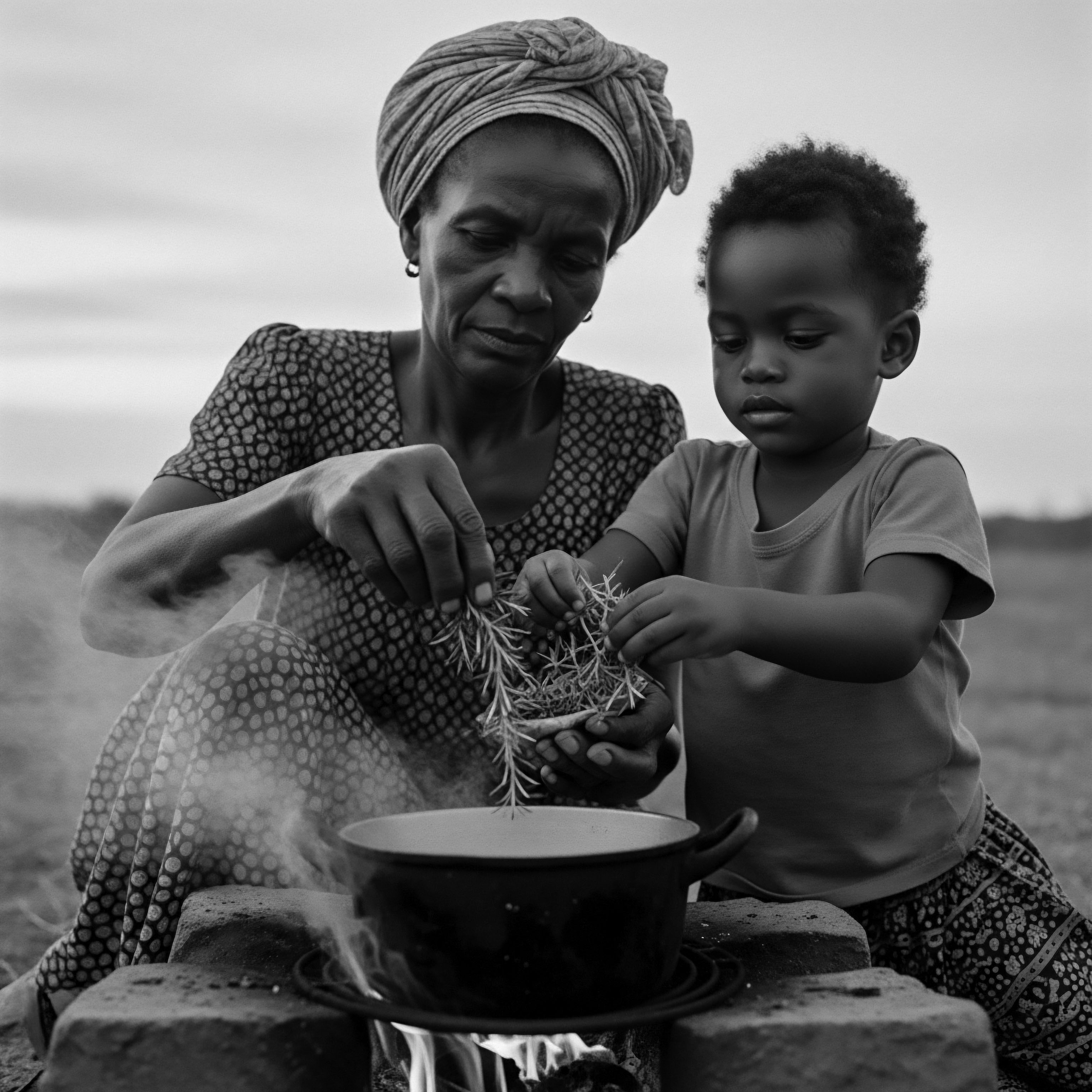
Ingredients across Diasporic Landscapes
The diverse ecosystems encountered by African descendants led to the discovery and integration of new plant-based remedies for hair.
- Castor Oil ❉ Particularly prominent in Caribbean and American traditions, its thick consistency was valued for promoting hair growth and strengthening strands, often used in hot oil treatments for scalp stimulation.
- Coconut Oil ❉ A widely available and versatile oil in many tropical regions, it was used for deep conditioning, adding shine, and protecting hair from damage.
- Yucca Root ❉ In some Native American and mixed-heritage communities, yucca root was utilized as a natural shampoo, producing a gentle lather that cleansed without stripping hair of its natural moisture.
- Sweetgrass ❉ Revered by some Indigenous North American tribes, sweetgrass was used in rinses to impart shine and a pleasant scent, connecting hair care to spiritual practices and respect for the land.
The ongoing practice of Botanical Hair Care within textured hair communities represents a continuous dialogue between inherited wisdom and environmental adaptation. It underscores the enduring meaning of self-care as a cultural and historical act, where every application of a plant-derived substance carries the weight of generations of knowledge and the spirit of ancestral resilience.
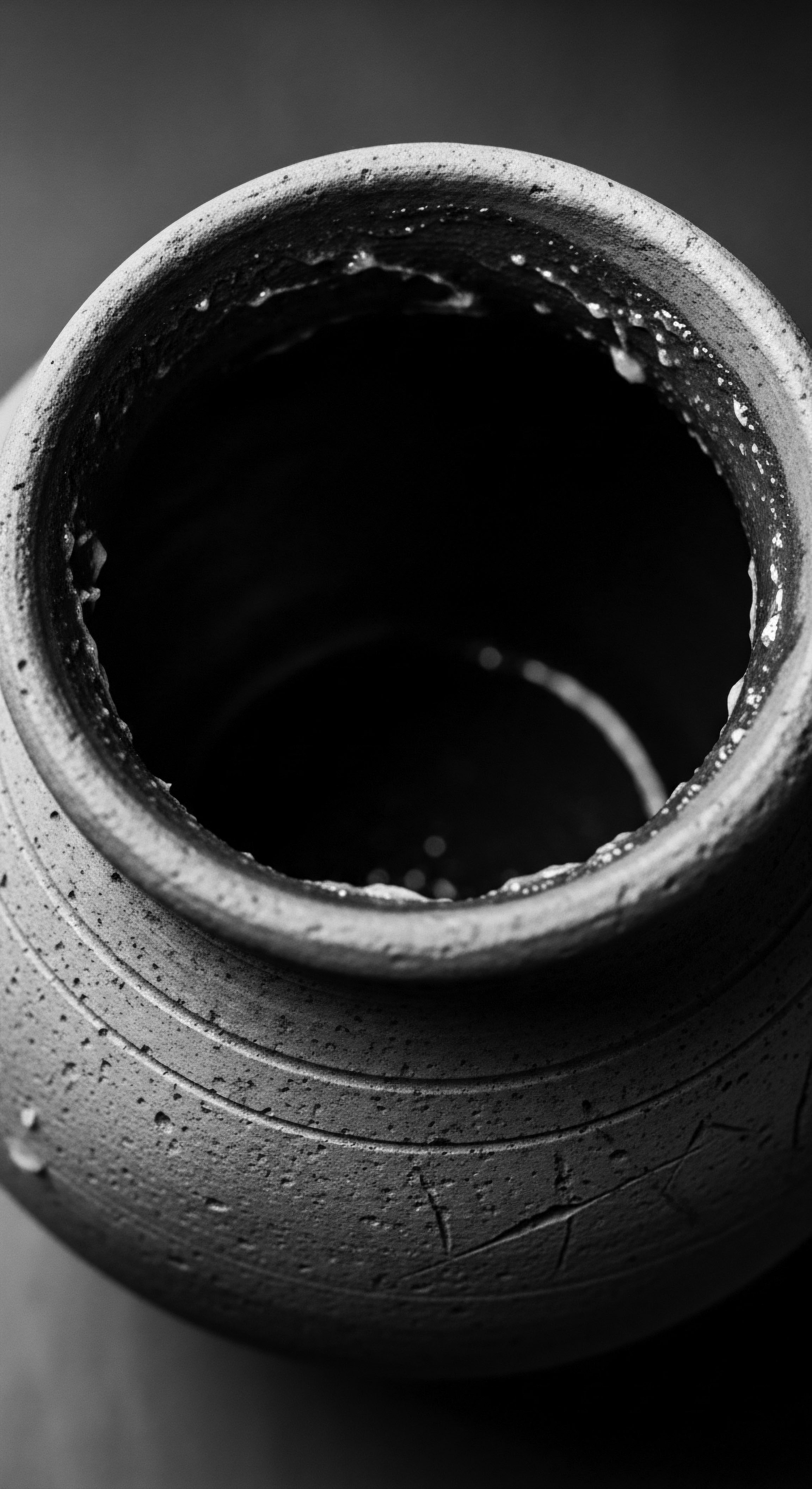
Academic
Botanical Hair Care, when examined through an advanced, scholarly lens, represents a sophisticated interplay of ethnobotanical knowledge, material science, and cultural semiotics, particularly as it pertains to textured hair, Black hair, and mixed-race hair heritage. Its meaning transcends simple product application; it embodies a complex system of inherited practices, biological responses, and socio-political assertions. This academic interpretation posits Botanical Hair Care as a dynamic cultural technology, refined over millennia, which harnesses the biochemical properties of flora to optimize the unique structural and physiological requirements of diverse hair textures, while simultaneously serving as a powerful conduit for identity, historical memory, and community cohesion.
The unique helical structure and often lower lipid content of textured hair necessitate a distinct approach to care, prioritizing moisture retention, breakage reduction, and scalp health. Ancestral Botanical Hair Care practices, developed through empirical observation long before modern scientific tools existed, intuitively addressed these specific biological needs. The application of plant-derived emollients, humectants, and anti-inflammatory compounds, such as those found in chebe powder (a traditional Chadian blend of Croton zambesicus, Mahllaba Soubiane, cloves, and resin) or marula oil, directly contributes to length retention by minimizing mechanical stress and providing a protective coating to the hair shaft. This scientific validation of traditional wisdom underscores the profound depth of ancestral knowledge, demonstrating that these practices were not merely ritualistic but functionally efficacious.
Botanical Hair Care is a profound cultural technology, where ancestral wisdom, honed over generations, directly addresses the biological needs of textured hair, serving as a powerful vehicle for identity and historical memory.
From an anthropological perspective, the designation of Botanical Hair Care within Black and mixed-race hair traditions operates as a form of cultural literacy. Hair itself functions as a semiotic system, conveying meaning through its style, condition, and adornment. The intentional use of specific botanicals in care rituals reinforces this communicative function, signaling adherence to ancestral customs, resistance to Eurocentric beauty standards, and a celebration of natural hair patterns.
The collective experience of hair care, often performed communally, solidifies social bonds and transmits cultural values across generations, making the practice a site of embodied heritage. The act of applying a botanical concoction, therefore, is not merely a grooming step; it is a reaffirmation of lineage, a conscious connection to those who came before.
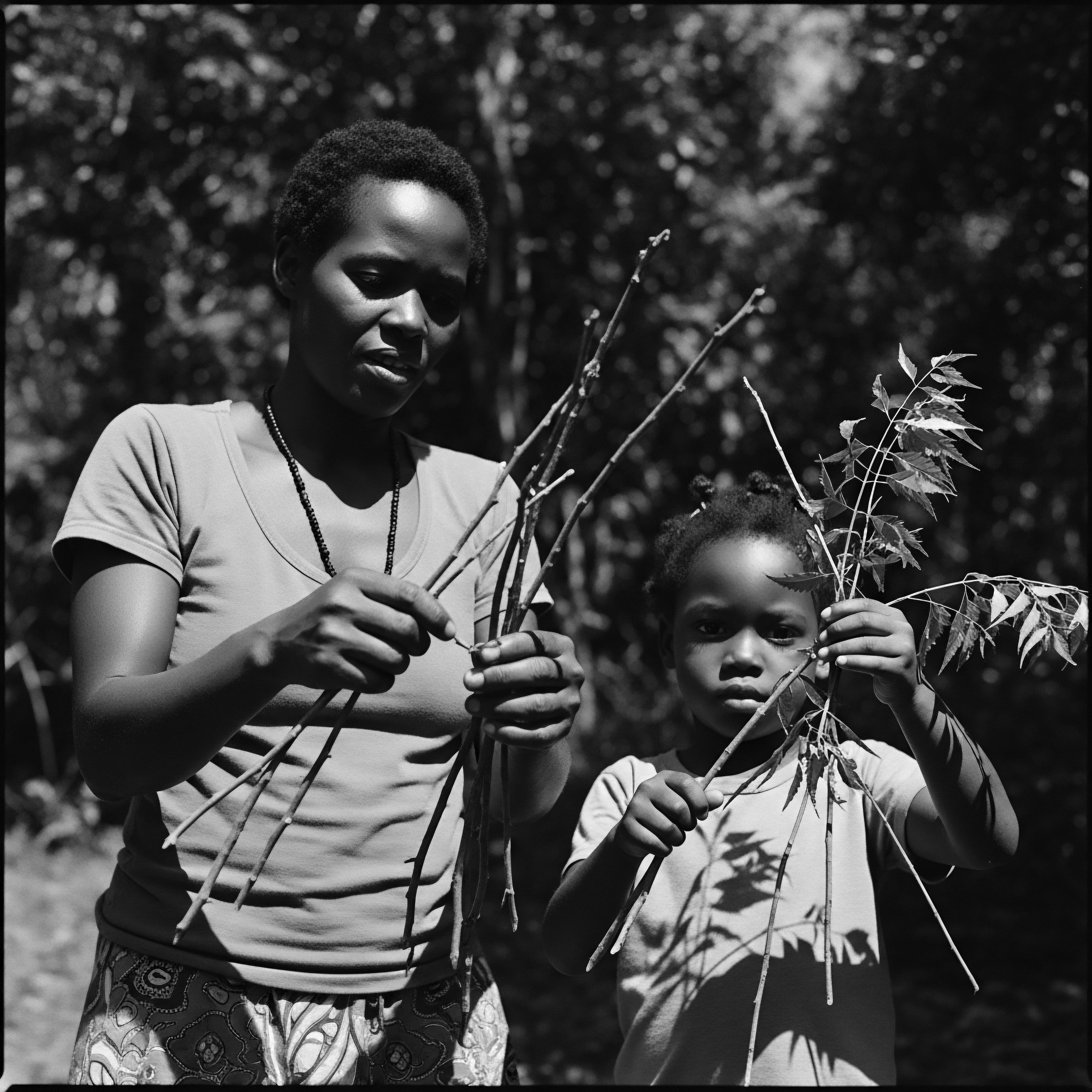
The Intersections of Biology, History, and Identity
The history of textured hair care, particularly in the diaspora, cannot be separated from the socio-political landscape. The forced imposition of straight hair ideals during slavery and post-emancipation periods, through methods like hot combs and chemical relaxers, represented a systemic attempt to erase African identity and enforce conformity. The subsequent rise of the Natural Hair Movement in the 20th and 21st centuries, advocating for the acceptance and celebration of natural hair textures, marks a powerful act of decolonization and self-reclamation. Within this movement, Botanical Hair Care has re-emerged as a central tenet, offering alternatives to chemical treatments and re-establishing a link to ancestral practices.
The ongoing academic and popular interest in ingredients like Manketti oil from the Kalahari region, rich in vitamin E and omega-6 fatty acids, or Baobab oil, a source of vitamins A, D, and E, speaks to a broader recognition of African botanical richness. This renewed appreciation is not simply about ingredient efficacy; it is about acknowledging and honoring the traditional ecological knowledge that preserved these botanical treasures for centuries. The intellectual and cultural property rights surrounding these ancestral ingredients also warrant careful consideration, ensuring that the benefits of their global recognition are shared equitably with the communities who safeguarded this wisdom.
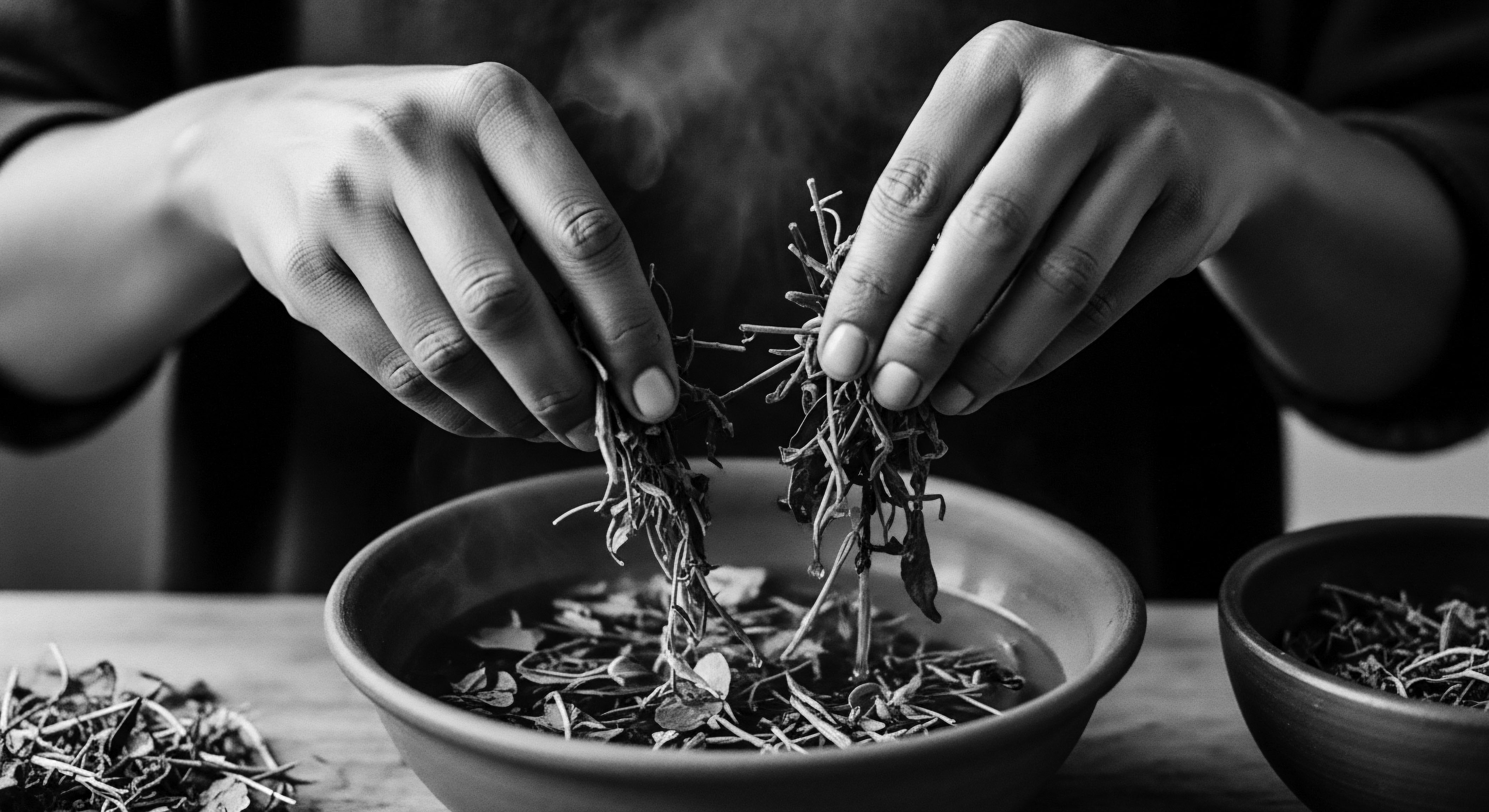
Contemporary Applications and Future Trajectories
Modern scientific inquiry now often seeks to elucidate the mechanisms behind the long-observed benefits of traditional botanical practices. Research into the anti-inflammatory properties of ingredients like Rooibos tea or the scalp-cleansing action of Rhassoul clay provides empirical evidence for what ancestral communities understood through generations of lived experience. This convergence of traditional knowledge and scientific understanding allows for the development of sophisticated Botanical Hair Care formulations that are both efficacious and culturally resonant.
The future trajectory of Botanical Hair Care for textured hair involves a deeper investigation into the phytochemistry of indigenous plants, coupled with a commitment to sustainable sourcing and ethical engagement with traditional custodians of knowledge. It necessitates a continued scholarly dialogue that transcends disciplinary boundaries, bringing together ethnobotanists, dermatologists, cultural historians, and community advocates. The goal remains a comprehensive comprehension of Botanical Hair Care, one that respects its deep historical roots, acknowledges its biological complexities, and celebrates its enduring power as a symbol of identity and resilience for Black and mixed-race hair.
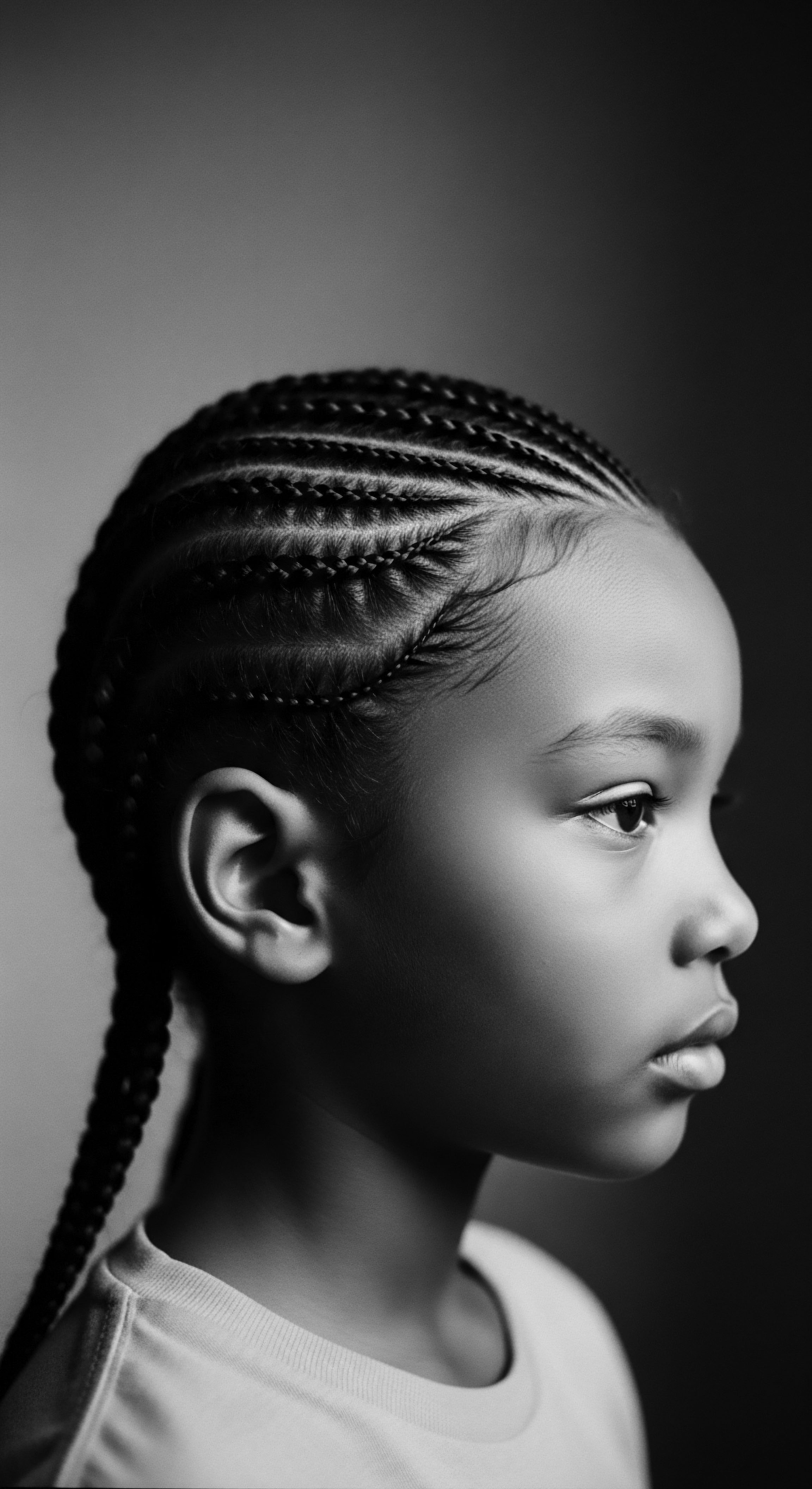
Reflection on the Heritage of Botanical Hair Care
As we contemplate the expansive journey of Botanical Hair Care, particularly through the lens of textured hair heritage, a profound realization settles upon us: this is more than a mere collection of practices or ingredients. It represents the very ‘Soul of a Strand,’ a testament to the enduring spirit of communities whose connection to their hair has always been inextricably linked to their identity, their history, and their survival. The whispers of ancient wisdom, carried on the winds of time and migration, resonate in every botanical preparation, in every tender touch of oil to scalp, in every meticulous coil defined by nature’s bounty.
The history of Black and mixed-race hair, with its periods of imposed conformity and triumphant reclamation, finds its grounding in these botanical traditions. From the intricate cornrows that once served as maps to freedom, embedded with precious seeds for sustenance, to the proud embrace of natural textures today, each style and care ritual speaks volumes. It speaks of a deep, abiding respect for the earth’s offerings, a recognition that true beauty and wellness are cultivated from the ground up, not imposed from without. This living library of hair care is not static; it is a vibrant, breathing archive, constantly being written by those who honor their ancestral lineage and adapt its wisdom for contemporary life.
The connection to botanicals for textured hair is a declaration of self-love, a rejection of narratives that sought to diminish or alter inherent beauty. It is a commitment to a path of wellness that acknowledges the body, mind, and spirit as interconnected, drawing strength from the very same plants that nourished generations past. The delicate pastel hues of Roothea’s vision find their grounding in the earthy tones of shea and marula, the vibrancy of aloe, and the subtle fragrance of ancestral herbs. This is a story of enduring beauty, not simply as an aesthetic, but as a profound act of cultural remembrance and future-building, one strand at a time.
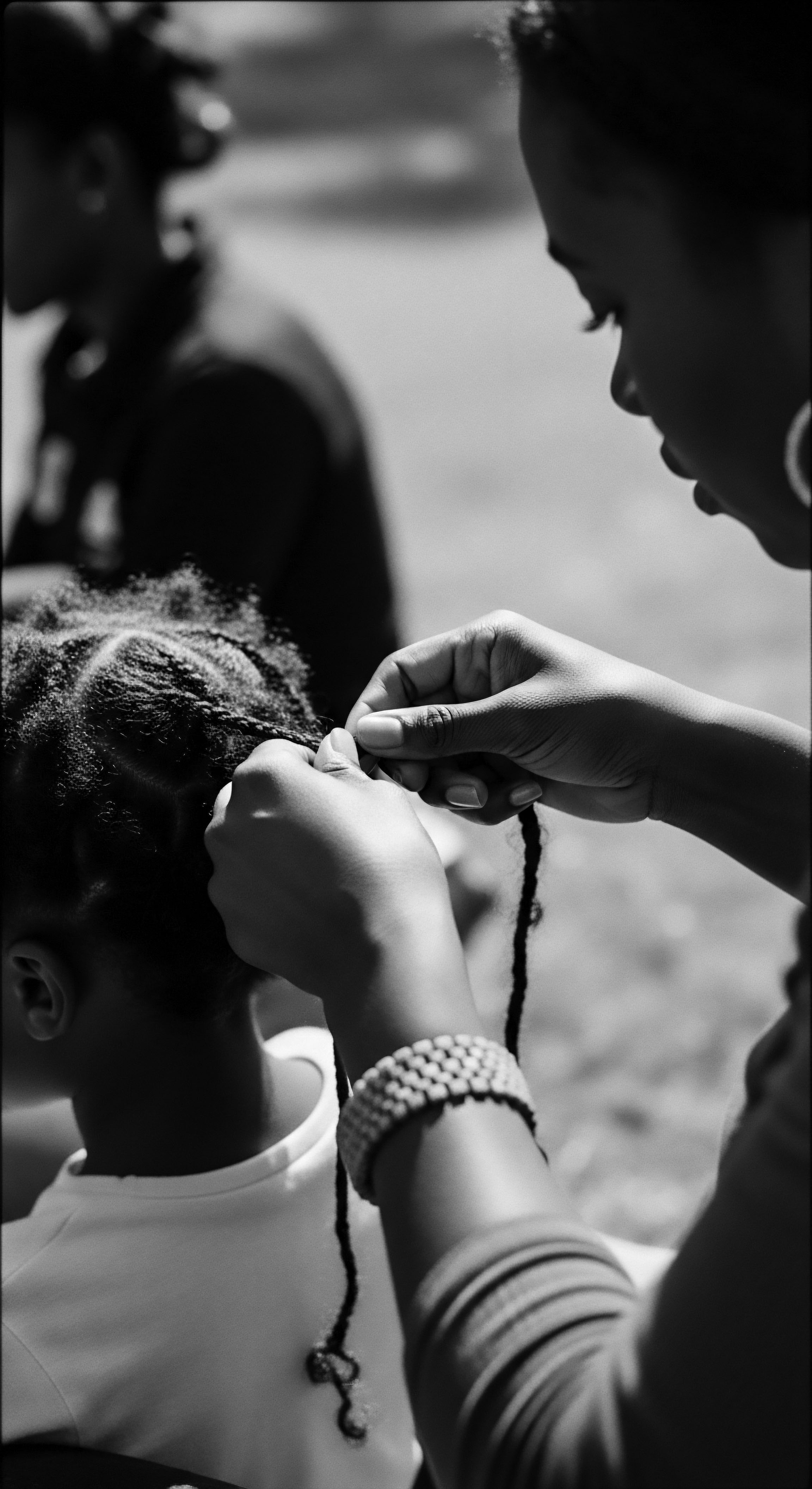
References
- Carney, J. A. (2001). Black Rice: The African Origins of Rice Cultivation in the Americas. Harvard University Press.
- Byrd, A. D. & Tharps, L. D. (2001). Hair Story: Untangling the Roots of Black Hair in America. St. Martin’s Press.
- Akbar, N. (1998). Light from Ancient Africa. New Mind Productions.
- Hunter, G. (2010). Image and Identity: The History of Black Hair. Black Dog Publishing.
- Oppong, J. R. & Kalipeni, E. (2004). The Geography of Health and Disease in Africa. Ohio University Press.
- Danquah, M. N. (1998). Willow Weep for Me: A Black Woman’s Journey Through Depression. W. W. Norton & Company.
- Patel, V. (2019). The Ayurvedic Hair Care Handbook. CreateSpace Independent Publishing Platform.
- Small, A. (2015). The Cultural and Historical Significance of Hair in African American Communities. Journal of Black Studies.
- Tetteh, J. (2017). African Hair: A Cultural and Historical Journey. Goldline Publishers.
- Okoro, O. (2020). Ethnobotany of Traditional African Hair Care Ingredients. Journal of Ethnopharmacology.

